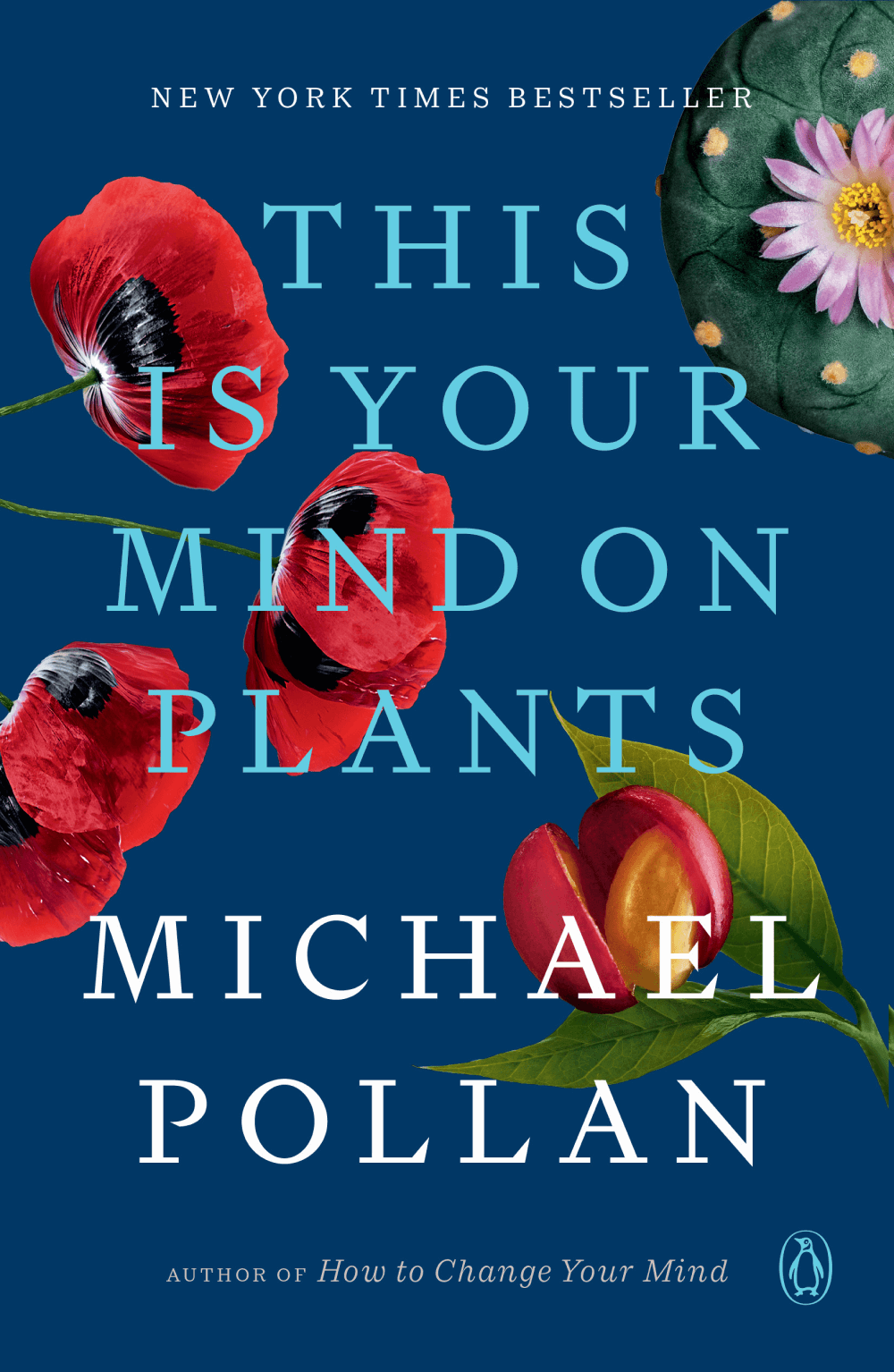
This Is Your Mind on Plants
From the #1 New York Times bestselling author Michael Pollan, a radical challenge to how we think about drugs, and an exploration into the powerful human attraction to psychoactive plants — and the equally powerful taboos.
Of all the things humans rely on plants for–sustenance, beauty, fragrance, flavor, fiber–surely the most curious is our use of them is to change consciousness: to stimulate or calm, fiddle with or completely alter, the qualities of our mental experience. Take coffee and tea: people around the world rely on caffeine to sharpen their minds. We don’t usually think of caffeine as a drug, or our daily use as an addiction, because it is legal and socially acceptable. So then what is a “drug?” And why, for example, is making tea from the leaves of a tea plant acceptable, but making tea from a seed head of an opium poppy a federal crime?
Purchase
More to say about
This Is Your Mind on Plants
In This Is Your Mind On Plants, Michael Pollan dives deep into three plant drugs — opium, caffeine, and mescaline — and throws the fundamental strangeness, and arbitrariness, of our thinking about them into sharp relief. Exploring and participating in the cultures that have grown up around these drugs, while consuming (or in the case of caffeine, trying not to consume) them, Pollan reckons with the powerful human attraction to psychoactive plants, and the equally powerful taboos with which we surround them. Why do we go to such great lengths to seek these shifts in consciousness, and then why do we fence that universal desire with laws and customs and such fraught feelings?
A unique blend of history, science, memoir, as well as participatory journalism, Pollan examines and experiences these plants from several very different angles and contexts, and shines a fresh light on a subject that is all too often treated reductively — as a drug, whether licit or illicit. But that’s one of the least interesting things you can say about these plants, Pollan shows, for when we take them into our bodies and let them change our minds, we are engaging with nature in one of the most profound ways we can. Based in part on an essay written more than 25 years ago, this groundbreaking and singular consideration of psychoactive plants, and our attraction to them through time, holds up a mirror to our fundamental human needs and aspirations, the operations of our minds, and our entanglement with the natural world.
Reviews
Interviews
-
The Power of Plants to Heal and Harm
-
Michael Pollan is Back with Mind-Bending Thoughts on Drugs, Ego Death, and the Healing Power of Plants
-
After a Hard Day’s Writing, Michael Pollan Likes to Unwind With a Novel
-
The Tim Ferriss Show — This is Your Mind on Plants
-
Michael Pollan Talks New Book, ‘This Is Your Mind On Plants’
Praise for
This Is Your Mind on Plants
In his latest exploration of the enduring relationship between the human and natural worlds, Michael Pollan dives deep into how psychoactive plants—specifically opium, caffeine and mescaline—impact our brains and our cultures. Pollan is a master of breaking down complex science into an engaging story and challenging long-held societal beliefs. His newest offering, which follows his examination of the science of psychedelics in 2018’s How to Change Your Mind, aims to unpack our ideas about what constitutes a “drug” and, fundamentally, why we seek them.
Time Magazine
In this paradigm-shifting cultural history, Pollan challenges our ossified taboos about psychoactive plants, charting our powerful attraction to these substances—and exposing the arbitrariness of our self-imposed restrictions….From the war on drugs to cultural appropriation of mind-altering substances like ayahuasca, Pollan deftly explores the links between set and setting.
Esquire
The food writer continues his career pivot to controlled substance thought leader. While his previous outing, the immensely popular How to Change Your Mind, made the modern case for psychedelics, Pollan’s latest broadens his focus to include uppers and downers. Pollan examines three psychoactive substances that occur in nature: opium, caffeine, and mescaline. The opium chapter is an amusing tale of Pollan’s attempt to cultivate opium from garden variety poppies, while the caffeine chapter will make you take a hard look at how much coffee you drink. This is Your Mind on Plants evangelizes less than How to Change Your Mind, but it’s just as thought provoking and all the better for it.
GQ
The omnivorously curious Pollan pivots off his provocative How to Change Your Mind with an enthralling odyssey into a trio of mind-altering drugs found in plants: opium, caffeine, and mescaline. In this wide-ranging, deliciously written study, he asks, why does one power us up each morning while the other two are shrouded in taboo? You’ll never look at a Starbucks Pike’s Peak the same way again.
Oprah Daily
A lucid (in the sky with diamonds) look at the hows, whys, and occasional demerits of altering one’s mind.
Kirkus Reviews
Blending artful exposition of the evolution and neurochemistry of botanical drugs, erudite history, and (usually) precise and evocative prose, this is an insightful take on plants’ beguiling sway over the human psyche.
Publishers Weekly